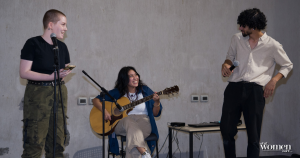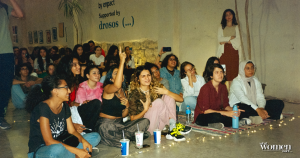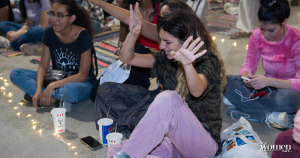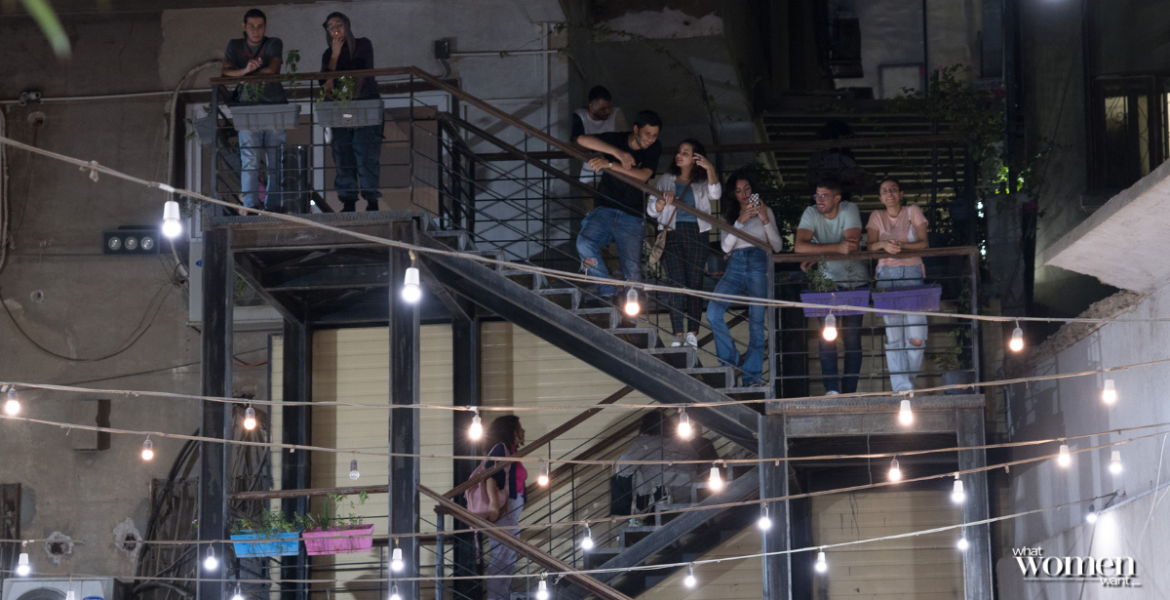Cairo is loud, chaotic, and bursting with creativity. But where does all that raw artistic energy go when it’s not given room to breathe? Enter Mazra’a Network for Arts and Culture—a cultural movement reclaiming art as a shared experience, not a commodity.
Founded by Youssef Mansour, Mazra’a isn’t your typical arts organization. The name itself—Arabic for “farm”—pays homage to Egypt’s agricultural roots. Just like a farm cultivates life, Mazra’a cultivates creativity, community, and the spirit of collective expression.
Cairo’s cultural scene is shifting. Creativity is no longer confined to closed circles or elite galleries. It’s in the hands of the people. At the center of this transformation is Mazra’a, a social enterprise aiming to strengthen the social fabric of the city through communal approaches to artistic expression and production.
From 404 to Mazra’a: A Creative Evolution

Before Mazra’a, there was 404 for Arts, an experimental space that gave artists a voice. It was a space where artists could gather, perform, and showcase their work without gatekeeping. But founder Youssef Mansour saw the need for something bigger. “Five years ago, there weren’t many opportunities for young artists,” he explains. “Everything was monopolized, with no entry points for newcomers.” It became clear—this was more than a platform. It was a movement.
Mazra’a is the next step—a fully realized ecosystem that doesn’t just provide a stage but builds a sustainable infrastructure for artists at every level. It’s an open invitation to reclaim culture from exclusivity and make it communal again. It challenges the notion that art is a privilege and instead positions it as a right—something to be experienced, shared, and used as a tool for resistance and self-expression.
Lina Khedr, Project Manager and Partner at Mazra’a, explained, “Mazra’a is a natural progression, as we grow and change so does the context we operate within, and so we evolve in tune with it. Our vision has expanded with all the possible ways we can now serve artists, entities, and the public.”
No Gatekeepers, No Limits

Mazra’a isn’t just a network; it’s a mindset. “You’ll find everything in one place,” Youssef says. “The services, the talent, the space to exhibit, and the community to connect with.” Mazra’a houses three key subsidiaries; Fabric Society, Ibrah, and The Third Place Studio.
Ibrah is creative cultural consultancy that offers artist management, event planning, and cultural programming. Fabric of Society is a platform for performances, exhibitions, and music nights where artists engage with the public. The Third Place Studio is a physical space in Maadi for intimate gatherings, live recordings, and workshops.
Each piece complements the other, creating an environment where art isn’t just produced—it thrives.
Breaking the Isolation of Individualism

Mazra’a isn’t here to play by the rules. It exists to challenge, disrupt, and rewrite narratives. Individualism has dominated the creative industry for too long, isolating artists and making culture feel like an exclusive club. Mazra’a flips that script.
Egyptian culture has historically thrived on the collective. But hyper-individualism has seeped in, isolating artists from one another. “This mindset makes collaboration difficult,” Youssef says. “It leaves artists struggling alone, confined by market forces and monopolized ecosystems.”
Mazra’a is the antidote. By prioritizing shared resources, free events, and accessible spaces, it’s redefining what it means to be part of an artistic community. Whether you’re picking up a guitar for the first time or planning a full-scale exhibition, there’s a place for you.
The Future of Mazra’a
Mazra’a is more than a name, a place, or a studio—it’s an open invitation. It calls on artists, musicians, writers, and visionaries to take up space, challenge norms, and make art that matters.
For Lina Khedr, Mazra’a is about redefining Egypt’s relationship with art. “Our projects span poetry, music, film, photography, and more,” she says. “We want to showcase our heritage while capturing the pulse of our modern culture.”
The goal isn’t just to create art—it’s to shift perspectives. “We hope to leave behind a generation that doesn’t live in isolation,” Youssef says. “We want to bring people together and equip creatives with what they need to sustain themselves.”
Mazra’a is a movement. It’s a call to reclaim art as a tool for social change, to break barriers, and to cultivate a cultural space where everyone belongs.

